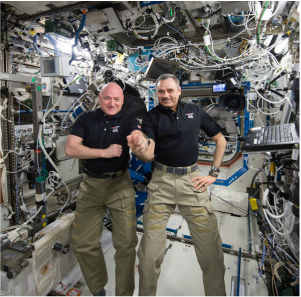Who is Reading My Space Journal?
|
Retired Astronaut Scott Kelly has shared his One-Year Mission with us through his viral social media posts, but did you know that his personal journals will be studied by NASA researchers?
Data As the Principal Investigator in this study connected to the One-Year Mission , Jack Stuster, Ph.D. and his team will analyze the journal entries made by crew members aboard the International Space Station (ISS). Scott Kelly is of particular interest in this study due to his long-duration mission. NASA has never before studied the cognitive functions of an American astronaut in space over a 12-month period and these researchers cannot wait to dig into this unique behavioral health data. Astronauts will complete pre- and post-flight questionnaires and submit at least 3 journal entries per week while aboard the ISS. Objective Twitter and Instagram may be the best way for the general public to be part of Scott’s mission, but for these researchers, introspective accounts of day-to-day life aboard the ISS can provide useful information about the factors that affect individual and group performance during confinement in space. Specific objectives include:
Results Findings from this research will aide in the design of equipment and procedures to support adjustment and sustained human performance during long-duration missions to Mars and beyond. Study results may also be applied to improve selection, training, support and scheduling. As NASA continues to develop the capabilities needed to send humans to an asteroid by 2025 and Mars in the 2030's, studies like this will be critical in preparing humans for the unexpected affects of this new frontier for spaceflight. |
|

